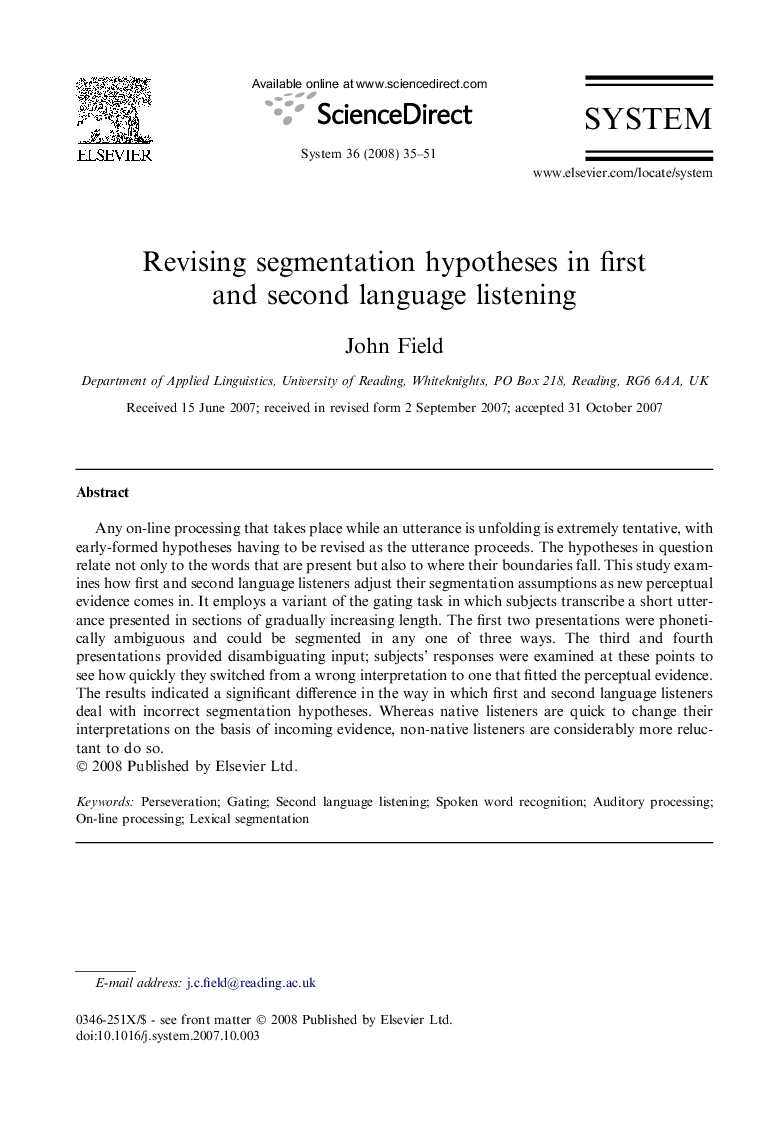| Article ID | Journal | Published Year | Pages | File Type |
|---|---|---|---|---|
| 373814 | System | 2008 | 17 Pages |
Any on-line processing that takes place while an utterance is unfolding is extremely tentative, with early-formed hypotheses having to be revised as the utterance proceeds. The hypotheses in question relate not only to the words that are present but also to where their boundaries fall. This study examines how first and second language listeners adjust their segmentation assumptions as new perceptual evidence comes in. It employs a variant of the gating task in which subjects transcribe a short utterance presented in sections of gradually increasing length. The first two presentations were phonetically ambiguous and could be segmented in any one of three ways. The third and fourth presentations provided disambiguating input; subjects’ responses were examined at these points to see how quickly they switched from a wrong interpretation to one that fitted the perceptual evidence. The results indicated a significant difference in the way in which first and second language listeners deal with incorrect segmentation hypotheses. Whereas native listeners are quick to change their interpretations on the basis of incoming evidence, non-native listeners are considerably more reluctant to do so.
